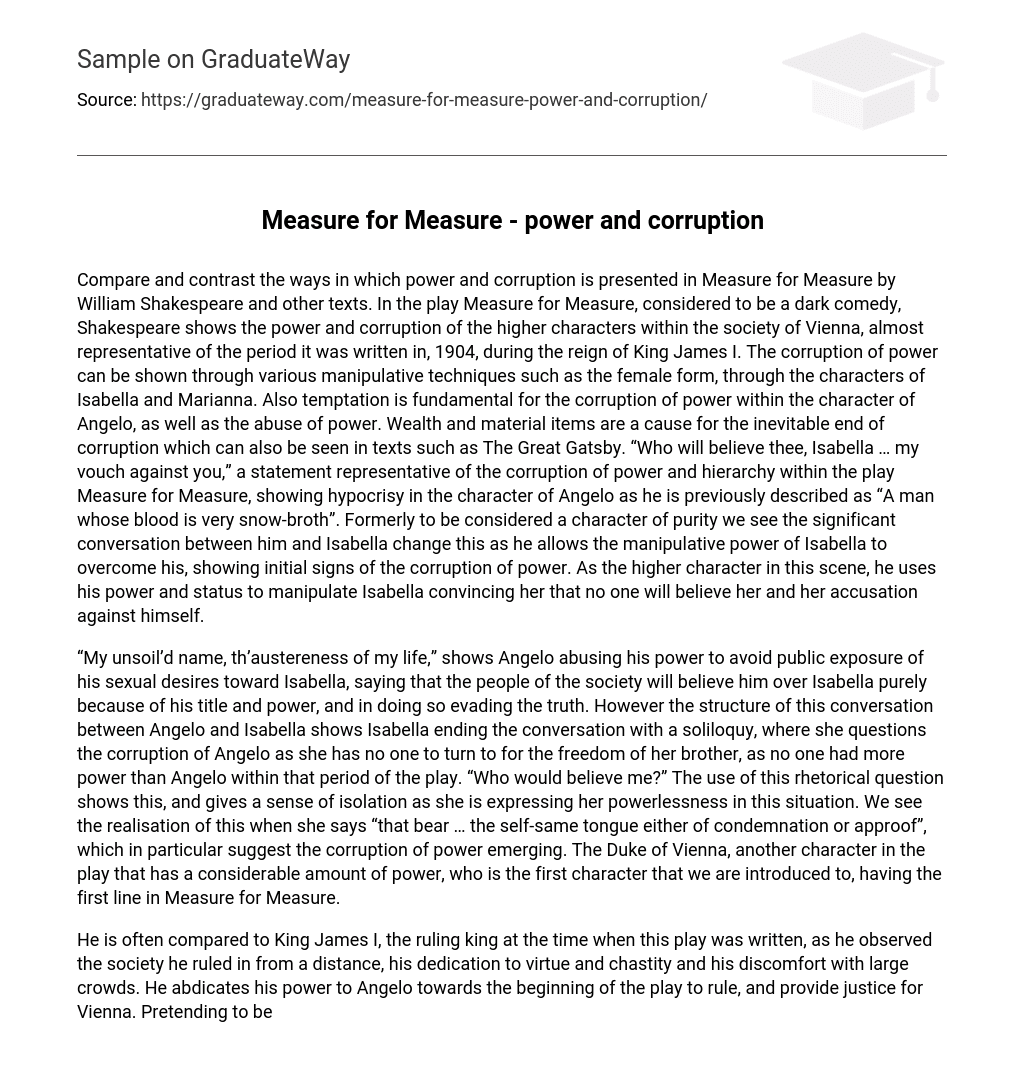Compare and contrast the ways in which power and corruption is presented in Measure for Measure by William Shakespeare and other texts. In the play Measure for Measure, considered to be a dark comedy, Shakespeare shows the power and corruption of the higher characters within the society of Vienna, almost representative of the period it was written in, 1904, during the reign of King James I. The corruption of power can be shown through various manipulative techniques such as the female form, through the characters of Isabella and Marianna. Also temptation is fundamental for the corruption of power within the character of Angelo, as well as the abuse of power. Wealth and material items are a cause for the inevitable end of corruption which can also be seen in texts such as The Great Gatsby. “Who will believe thee, Isabella … my vouch against you,” a statement representative of the corruption of power and hierarchy within the play Measure for Measure, showing hypocrisy in the character of Angelo as he is previously described as “A man whose blood is very snow-broth”. Formerly to be considered a character of purity we see the significant conversation between him and Isabella change this as he allows the manipulative power of Isabella to overcome his, showing initial signs of the corruption of power. As the higher character in this scene, he uses his power and status to manipulate Isabella convincing her that no one will believe her and her accusation against himself.
“My unsoil’d name, th’austereness of my life,” shows Angelo abusing his power to avoid public exposure of his sexual desires toward Isabella, saying that the people of the society will believe him over Isabella purely because of his title and power, and in doing so evading the truth. However the structure of this conversation between Angelo and Isabella shows Isabella ending the conversation with a soliloquy, where she questions the corruption of Angelo as she has no one to turn to for the freedom of her brother, as no one had more power than Angelo within that period of the play. “Who would believe me?” The use of this rhetorical question shows this, and gives a sense of isolation as she is expressing her powerlessness in this situation. We see the realisation of this when she says “that bear … the self-same tongue either of condemnation or approof”, which in particular suggest the corruption of power emerging. The Duke of Vienna, another character in the play that has a considerable amount of power, who is the first character that we are introduced to, having the first line in Measure for Measure.
He is often compared to King James I, the ruling king at the time when this play was written, as he observed the society he ruled in from a distance, his dedication to virtue and chastity and his discomfort with large crowds. He abdicates his power to Angelo towards the beginning of the play to rule, and provide justice for Vienna. Pretending to be a friar, he was able to watch what was going on from a short distance, which started to bring in the abuse of his power and the ability to mimic the friar to manipulate the people around him such as Isabella, Claudio and Marianna.





